Notes on Bombay
...
The flight boards in less than two hours. I am going to miss proper English food, like curries and pizza and Thai. There is no cooking in India; all of it is spiceless and bland. To kiss my country goodbye, I order a vegan full English at Wetherspoon’s. When they bring it out, it comes with a Lurpak and two fried eggs.
The in-flight TV, courtesy of Kuwait Airways, has five or six South Asian films. I click on one and my life is changed forever: this girl wants to leave India for a fictitious London university called Truford, and her father vows to get her there if she gets the grades; she goes ahead and gets the grades, but her father immediately bungles it by publicly shaming a corrupt judge who happens to be his daughter’s head teacher’s husband. The father then vows to get his daughter the education she wants anyway, soliciting a UK citizenship with the help of an Anglo-Indian contact who, having left India for England, has acquired an Australian accent.
From there Dad and daughter are separated at the border due to a language barrier issue where Dad accidentally says his Anglo-Indian friend is a drug dealer instead of a pharmaceutical businessman, but manages to sneak back in by pretending to be Muslim instead of Hindu. (The comedic digs at the expense of Muslims and Urdu speakers are cut from the film—either by Bollywood censors or the airline or both.)
From there various hijinks ensue.
Finally, after pledging to let his daughter make her own choices from now on and to stop being so overbearing, the daughter renounces her place at Truford to go back to India and live with her father. The film is a heart-warming celebration of national pride and family values, with amusing depictions of the English.
When the plane touches down in Mumbai, I thank my seat neighbour again for giving me the vegetarian tray which the cabin crew gave him by accident. After making it through security, I dilly-dally at a small café where I have two Coke Zeros and a breakfast, marvelling at how it all costs nothing. From there I get an Uber to my hotel. (The trains, I am told, are very hard to navigate as a newcomer.) At the start of the ride, I read a few pages of Behind the Beautiful Forevers, a book about life and missing limbs and vexatious legal squabbles in one of Mumbai’s largest slums. Looking out the window, I put the book down to see Annawadi, the very slum the book is about.
My room was small and sweet and stocked with two complementary water bottles; to remind myself not to reflexively pour tap water on my toothbrush, I lay the room service menu on top of the tap. The week before my trip, I had been reading Suketu Mehta’s Maximum City, which I had read is “the definitive book about Mumbai”1. Mehta had tried to impress upon me the reader—quite vividly, would recommend—just how hard it is to respect the privacy of one’s neighbours in Mumbai; the view was stunning if you like crowded cityscapes as much as I do, but there was no way to look outside without gazing through the windows, and into the private lives, of ten or so neighbouring flats. I reluctantly drew the curtains.
Still wonderstruck by the price of goods, I snag some English-language books at a poncy bookshop—a large collection of Rumi poems, a short book on the opium trade and the creation of Victorian Bombay, and Bibek Debroy’s translation of the Vishnu Purana. I spend the evening with the latter book in a lovely café on a nearby street.
The next day, as is my secret habit, I google whether the city I was staying in had a magic shop. I find one in a Muslim neighbourhood about twenty minutes from my hotel by car. The supplies were old-timey and nostalgic—squishy red sponge balls, appearing canes, levitating voodoo dolls, all sorts. I squint at one of the dolls, trying to move it with my colonial gaze.
For a while I nose through the the boxes, which I’m sure is annoying for the four people sitting on the floor. I shell out for a few props and do a card trick while I wait for my taxi. The girl behind the till asks for my social media; I politely decline since, just prior, she had said something complementary about my hair, plus I knew my card trick was amazing. With one minute on the Uber remaining, I introduce myself to Oreo, the only dog I made friends with in Mumbai since I had cheaped out and foregone a rabies shot. He is demure and polite and inside.
That night I go to an overpriced cocktail bar to read the book of Rumi poems, which is prettily edited but weirdly sanitised of Islam to suit the translator’s spiritual-but-not-religious agenda. To avoid being papped with a book and posted online and then publicly shot and decapitated for being a performative reader, I keep the cover flat on the bar table. (Bars, especially loud ones, are my favourite places to read. I can read in silence but for some reason I focus better with a 80 decibels of noise and music and chatter; in contrast, a very small amount of noise—tick, tick, tick—is intolerable.)
My strategy backfires and the young woman next to me wants to know what I’m reading. I show her the cover—careful not to lift it up in case the paparazzi are watching me—and she tells me about she grew up reading translations of Rumi in Sanskrit, which sounds cooler than reading them in American Deepak Chopra-style English.
“If it’s Rumi, it’s good.” She repeats this a couple of times.
I am here to see temples; this is why I came.
Fortunately I am in touch with a friend of a friend of my family—call her Nisha—who offers to show me around and, what’s more, cook me breakfast. This is amazing, so I speed down in the morning, and breakfast is delightful and scrumptious, though I am definitely eating it wrong.
She hails an autorickshaw (“Auto!, Auto!”) and directs the driver to a number of the smaller local temples, and he waits outside when we go in. Around this time Mumbai is gearing up to celebrate Ganesh Chaturthi, so Ganesh appears almost everywhere. We must have explored at least six smaller sites, some of which are rooms of their own and some of which are roadside shrines, surrounded by food and candles and flowers and powers and sweets.
We also walk around inside two much larger temples—thronging, beautiful—one of which is run by ISKON, as well as a Sikh gurdwara.
A note on driving: oddly enough, I felt very safe on the roads, despite a number of cars having had their seatbelts ripped out and every road being an improv game of guess-where-I’m-going-to-swerve. Sometimes I looked up and say my drivers watching YouTube or short form content on the motorway. I never said anything because… let them have their TikTok time. If they weren’t the slightest bit worried about wending in and out of cars wending in an out of cars between people and around cows, I wasn’t worried about it either.
The two things I saw that were commissioned by the British were sort of underwhelming in person; the Gateway of India—which was erected in the honour of George V, to mark his landing for his Emperor of India coronation in 1911—was covered in scaffold and looked less cool than the pictures; the Prince of Wales Museum of Western India nearby, now called Chhatrapati Shivaji Maharaj Vastu Sangrahalaya, was pretty fun and contained some fantastic ancient exhibits—but, in all, they only took an hour to see.
After failing to locate an Uber outside the museum in good time, I sidle over to a nice older gentleman with a cab and told him the exact amount I would pay him to drive me to Café Leopold. He accepted and drove me down, peppering me with questions such as ‘How long are you staying in Bombay?’, ‘Where do you go after?’ and ‘Marriage when?’.
On the way he asks if he could change my mind about where I wanted to go and said tomorrow if I gave him my address he would drive down to my hotel and take me to the slums, plus a number of other destinations I can’t remember. Honestly I think it would have been a lot of fun but I tell him no thank you just Café Leopold please.
I have never been more oppressed, in my entire life, than in India trying to get something spicy. Nearly every time I ordered a food item in Mumbai I ordered one labelled spicy; but, seeing my pasty eucharistic body and the proverbial sunscreen glooping down my nose, every waiter and every kitchen engaged in a massive conspiracy to not give me any spice. If I had ordered a chilli-stuffed chilli boiled in tabasco with a chilli flake garnish covered in spice, they would have brought me a bell pepper with a tall glass of frosty milk. They were doing me a kindness but they didn’t understand. I wanted them to ruin my day and my night and my subsequent years on this earth; I wanted them to rub chilli in my eyes and blowtorch my dreams and cover my lap with mucus.
Other than that Café Leopold is excellent and I stay for a good few hours.
Unfortunately I am sick on my last day due to my weak and inexperienced immune system, so I go to an air-conned café, read a while, and then make my way back to the airport to fly to Bangkok. On the way, the taxi driver vents about traffic police, who apparently sit around doing jack shit for their entire shift until their final hour on the job, when they impose fines on drivers and then offer them the opportunity to pay one hundred rupees less in the form of a bribe.
He says they are also making taxi drivers wear white t-shirts, and fining ones that don’t; I ask why he is wearing a blue top. He says something to the effect of “White t-shirt every day? No.”
This strikes me as pretty fair.
Kamdar, Mira. (2018). India in the 21st Century: What Everyone Needs to Know. New York: Oxford University Press: p. 229.


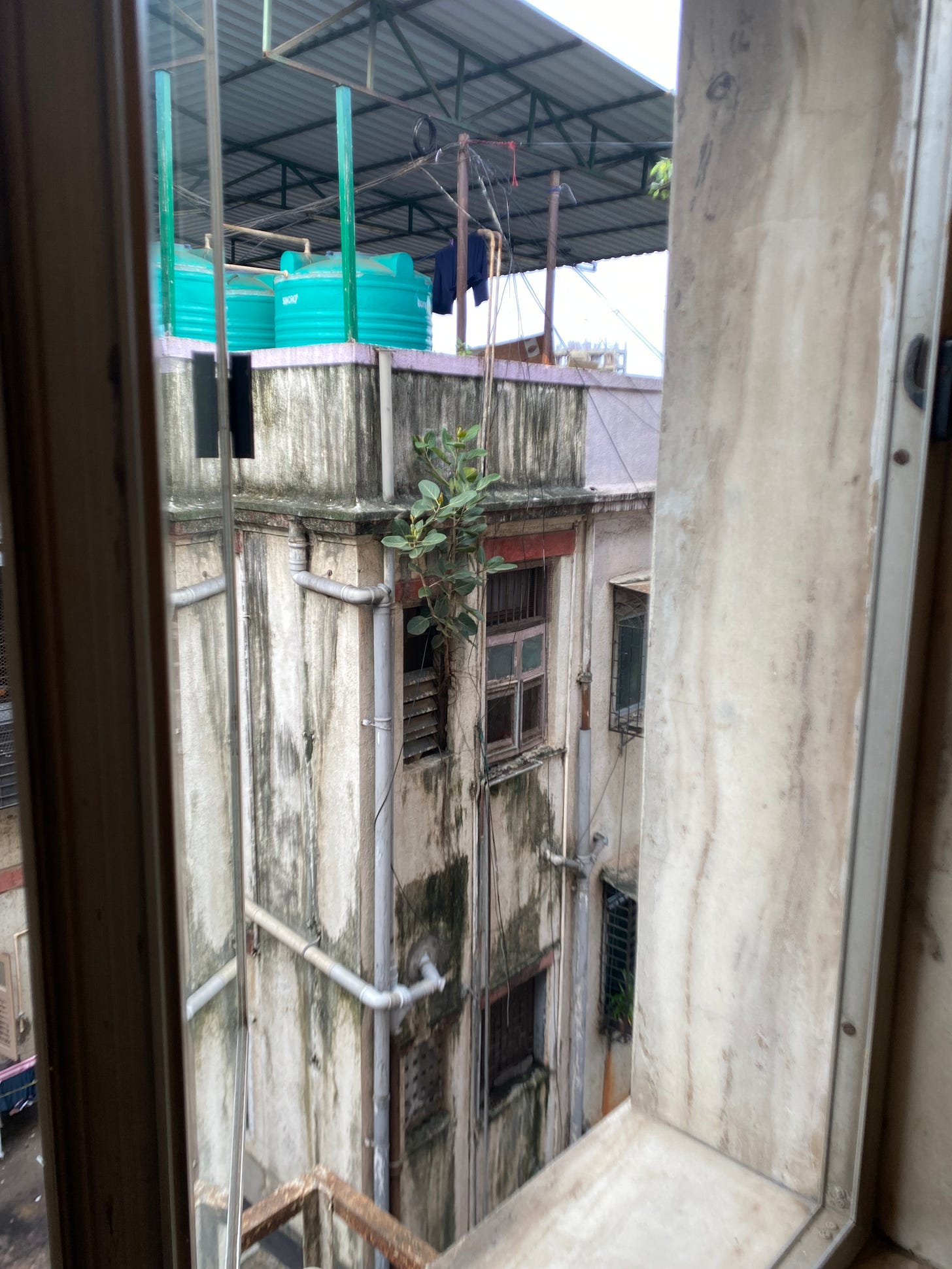

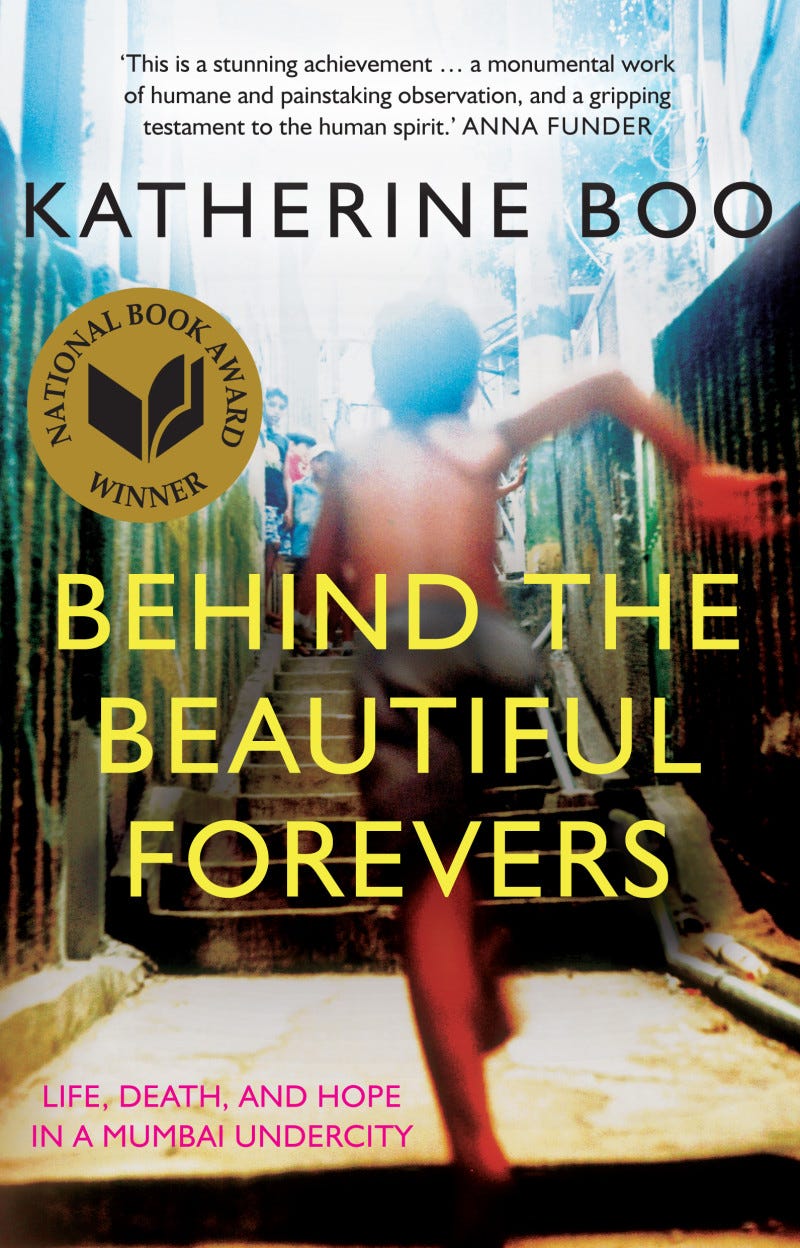
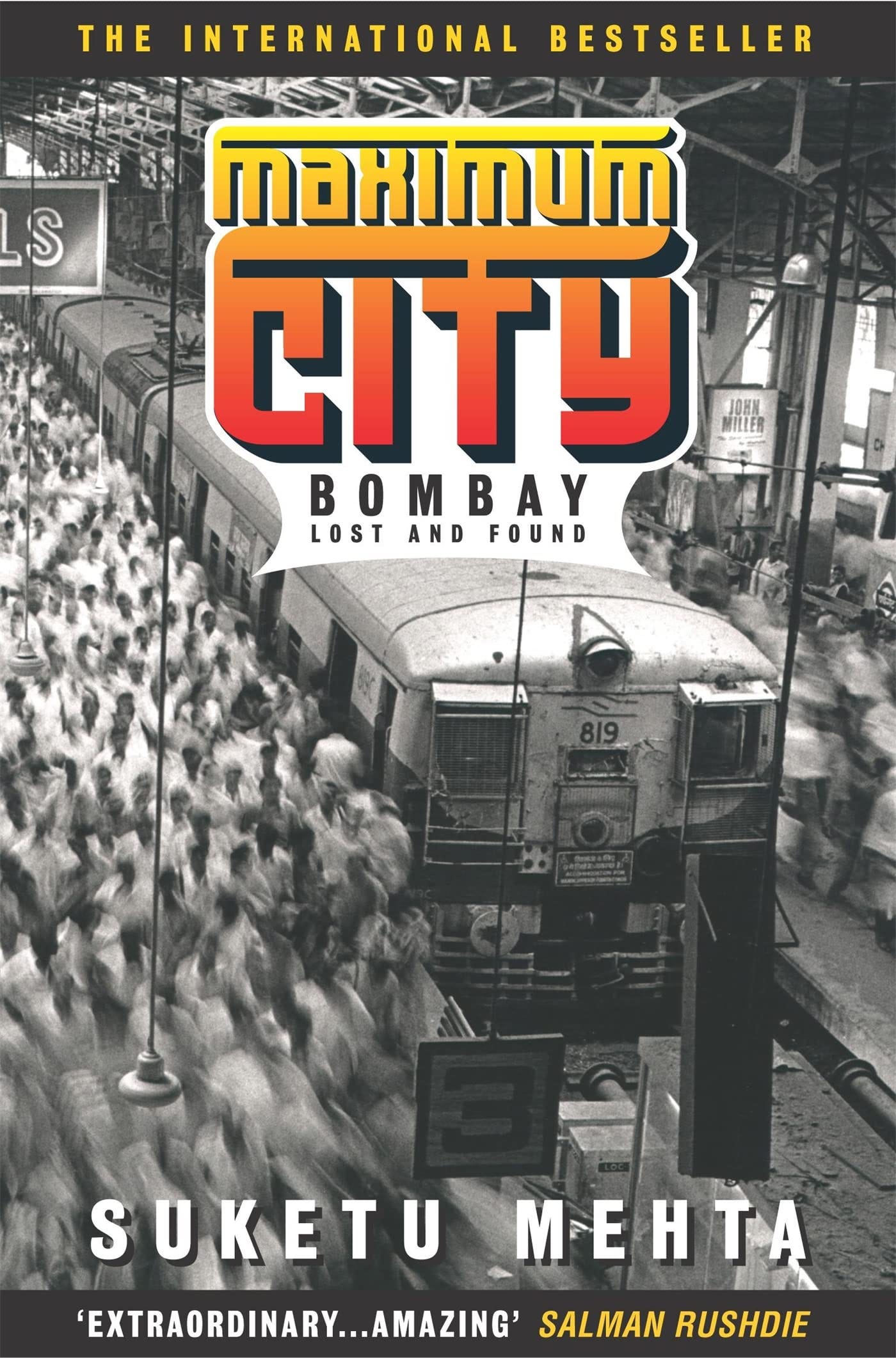
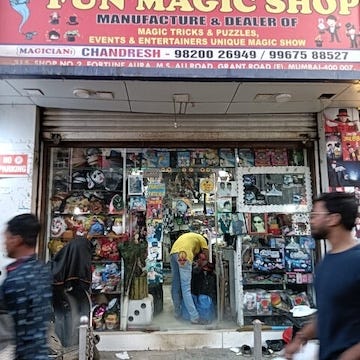
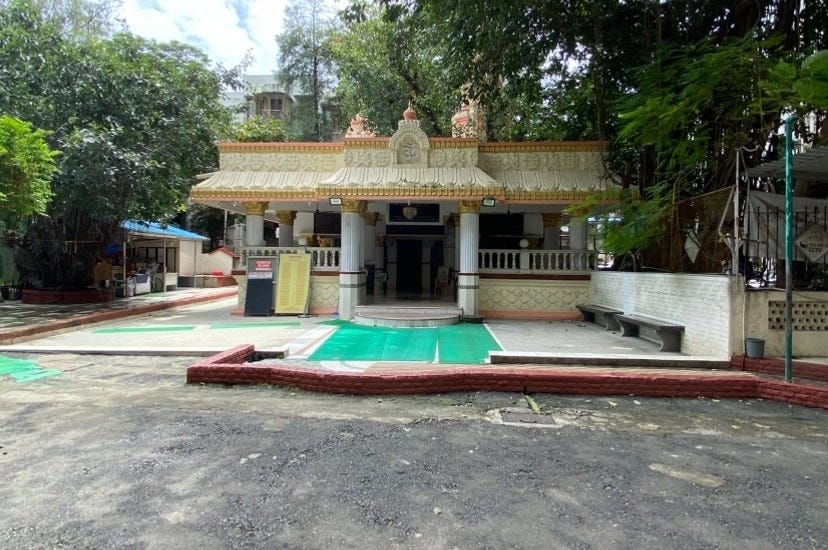
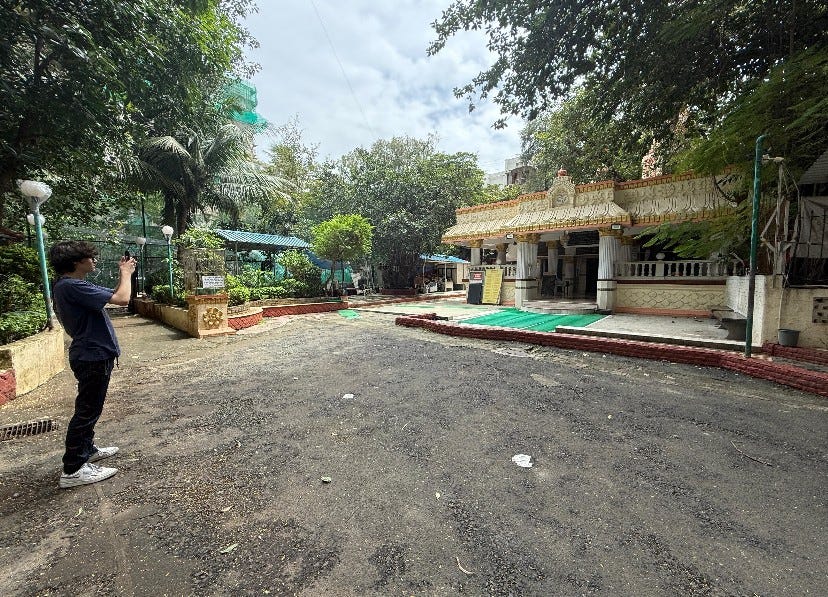
squinting at the dolls with what???
Go Amos!